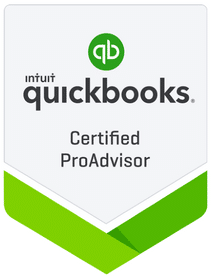- Patrick Roney
- (877) 503-8607
Follow Us :
Follow Us :
Proledge
August 3, 2012

In large companies, the hierarchy within the finance department consists of the CFO, one or more controllers and several bookkeepers. In smaller companies, these functions get collapsed under fewer people. For small businesses, the function of CFO is usually played by the CEO. Bookkeeping is done by an in-house bookkeeper or outsourced to a contractor or an outside firm. The fuzzy part is usually the function of the controller. Who plays that role in a small business?
Let’s first quickly define the respective roles in the context of a small business. The roles of the bookkeeper and the CFO are usually well understood. The bookkeeper’s role is very tactical and consists of keeping the books up-to-date. The CFO’s role is much more strategic and entails forecasting, budgeting, managing the capital structure and communicating with investors and lenders. The controller role is what’s in between these two extremes.
The controller remains quite tactical. The controller won’t make long range strategic decisions. However, the controller operates a lot more in the subjective range than the bookkeeper. Whereas the bookkeeper’s responsibilities are very black and white (record this transaction here, reconcile that account, enter this bill,…), the controller needs to make day-to-day decisions to manage cash flow (which vendors will we pay today? will we have enough cash to cut payroll next week?).
So, who should play that controller role in a small business? Most small business can’t afford to have a dedicated controller on staff. This function needs to assigned to someone who already has another role. Typical options include the following:
This is generally the worst option, because you lose all internal controls. You put too many responsibilities in the hands of a single person who might not be fully qualified. You expose your business to mistakes and fraud. Proper internal controls require two sets of eyes to manage movements of funds (payments, deposits, etc…).
This is perfect from an internal control stand-point and is the recommended approach for very small businesses. However, as the business grows, this is not scalable. The CEO will need to start delegating the controller function.
There is a growing class of consultants in the market place focused on offering this controllership function on a part time basis. If the person is qualified, this is a very good solution, but the challenge is to hire the right consultant.
Some CPA firms focus exclusively on tax preparation and audit and won’t get involved in your day-to-day business. However, some CPAs offer this outsourced controllership function. It’s quite unusual that they would play a full controller role though. For instance, it is often impractical (and expensive) to have your CPA involved with A/P and A/R, but if you can get your CPA to review the books very regularly and ensure that the bookkeeper is recording things correctly, it can be of huge value. In this case, the controller function gets split between the CPA (quality control) and the CEO/CFO (deciding which vendors to pay, approving transactions, etc…).
Because small businesses don’t have the resources to have the typical CFO/Controller/Bookkeeper structure, you need to be creative in order to approximate this role distribution. There are three key guidelines to keep in mind:


Fill out the form below to sign up to our Blog Newsletter and we’ll drop you a line when new articles come up.
Bookkeepers.
Professional. Affordable.
ProLedge is a bookkeeping services firm.
Copyright © 2024 All rights reserved.
Hello. Can we help you?